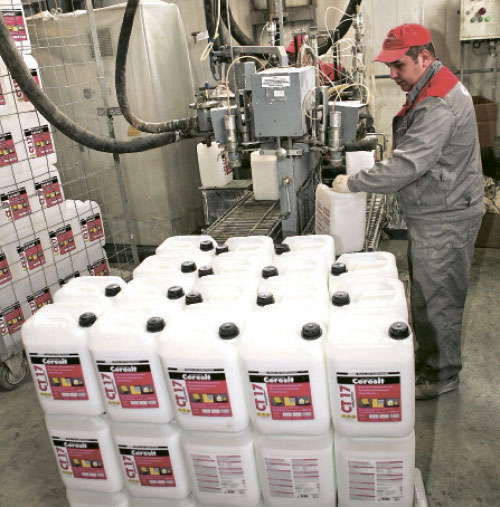
Investments into Henkel Bautechnik in the Minsk Region totalled $10m.
For many of these properties it would be beneficial to find new owners although suitable candidates are not easy to find. The Deputy Chairman of the State Property Committee, Alexey Vasiliev, at the final session of the committee admitted that investment activity is currently low. Last year, the state assets of 13 joint stock companies were sold and only one enterprise was sold as a single entity generating around $42m. The new owners expressed their willingness to invest another $73m in the business. In theory, almost any business can be privatised but in practise there are obstacles to the successful transfer from state to private ownership.
Buyers are primarily interested in price, which is a costly and time-consuming thing to set in itself. The issue of who will buy a business can cause difficulties at the preliminary negotiation stage. On hearing the price, a potential buyer can easily change their mind. Whilst it would be advisable to calculate the value of all state assets, enterprises can currently exist under the state ‘wing’ without any market assessment and the process of valuation would itself be costly. In short, selective privatisation has its advantages: investors are offered a wide choice of production facilities. However, the lack of their fixed price is a major difficulty. Sales of state-run assets at auctions, popular in 2011, were stopped for a variety of different reasons and consequently the process of privatisation has slowed.
The problem of state property management is acute. Many assets truly resemble a suitcase without a handle: it’s impossible to throw them away. However, the budget is no longer able to bear the burden. At present, the state owns assets in 1,846 joint stock companies — partially or completely. Dividends come from less than 30 percent of them and amount to Br5.43 trillion. Br3.5 trillion of this accounts for the top ten of the most profitable enterprises, with Belaruskali in the lead contributing Br2.6 trillion. Others demonstrate a poorer performance: some barely make ends meet and others generate minor profits. Some enterprises are a greater strain on the budget: last year, 279 joint stock companies received state support — consuming Br2.32 trillion. Disturbingly, their appetite is growing: in 2012, just 117 joint stock companies received state aid of Br567bn.
The State Property Committee recognises the problem and has already developed a mechanism to assess companies quickly, so that potential buyers can receive a prompt costing. New ways to deal with the transfer of complicated assets to businesses are planned, among them is securities trust management and the rental of enterprises. These are new mechanisms but have already been tested: 8 Marta JSC has taken on trust management over Rechitsa Textile JSC (which was run by the state). Several pilot projects are in the pipeline. If these new instruments prove their efficiency in the Belarusian market they will be widely used.
The privatisation history of 109 enterprises sold in 2011-2014 has dispelled the myth of individual owners as exploitative. The companies work well in private hands, although they demonstrate varied success: profits and losses interchange depending on the market situation. 62 percent of them however are running at a profit, lower than the overall national figure of course, as not all successful companies were offered for sale. Time will be needed to put them in order, most importantly, these enterprises receive no state support. With this in mind, privatisation truly has its positive side.
By Vladimir Velikhov











